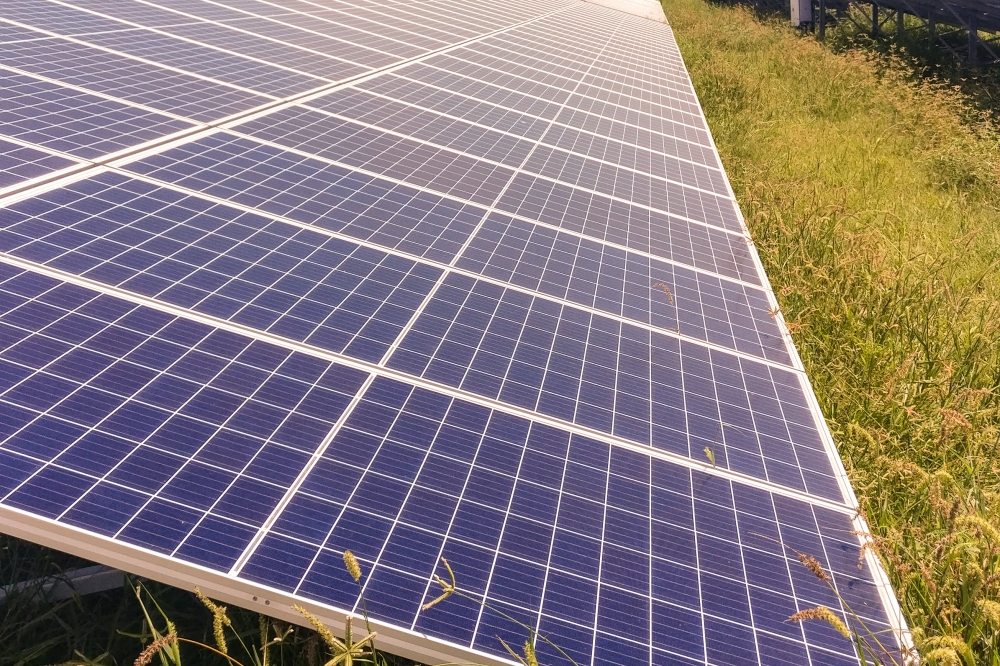Decarbonizing EU buildings could create new domestic industries, McKinsey & Company study reveals

The EU drive for energy-efficient buildings is being impeded by a major domestic supply chain shortage which offers opportunities to grow lucrative local industries from heat-pumps to rooftop solar manufacturing, according to a new McKinsey & Company study.
The report - Refurbishing Europe: Igniting opportunities in the built environment - finds that Europe has a shortage of 1.6 million qualified personnel for the forecasted rate of insulation, heat pumps, or solar panel installation and meeting its decarbonization targets would require 132 new heat-pump factories producing 100,000 pumps a year. Achieving EU targets would also require 15 times the current rate of difficult-to-achieve deep renovations, and one and a half times the current rates of rooftop solar installation. The report pinpoints a major opportunity to accelerate EU energy autonomy while creating domestic supply chains and high-growth new industries. For example, McKinsey expects that an ambitious roll-out of heat-pumps and solar panels could contribute to the creation of 2 million jobs across Europe by 2030. Bringing heat-pump manufacturing in-house could also represent a €57 billion EU industry by 2030.
The report reveals the EU is over-reliant on other parts of the world for rooftop solar panels and heat pumps with China supplying 98% of some solar components, creating an opportunity to increase its energy autonomy by expanding domestic supply chains. It also shows that the EU currently has insufficient local materials, manufacturing capabilities and skilled labor to meet its decarbonization targets.
The analysis shows Europe’s building stock is disproportionately old and inadequately insulated, with 53% of dwellings rated ‘low insulation’, or poorly insulated. Achieving EU decarbonization targets would therefore require 103 million unique installations between now and 2030.
Bram Smeets, Partner at McKinsey said: “With buildings responsible for 35 percent of EU energy-related emissions and 32 percent of its natural gas consumption, decarbonising the built environment is vital to both the EU’s energy security and climate targets. “Low-carbon buildings not only represent an opportunity to create new industries and supply chains but also to dramatically lower energy costs for consumers. Heat-pump adoption, rooftop solar installations, and insulation improvements could each individually reduce household energy bills by 30 to 40 percent. Further, heat pump payback periods could fall to nine to ten years and solar payback periods as low as five to nine years by 2030, with additional reductions as electricity costs are reduced.”
Gustav Bolin, Associate Partner at McKinsey, said: “Creating new European supply chains in home installations would not only help meet EU climate targets but create new business opportunities from production and assembly to distribution and installation. Our analysis indicates there is a potential €300 billion addressable market for distribution and installation services, and green financing could be worth over €300 billion a year by 2030. Yet building an EU supply chain will require a major upskilling of Europe’s workforce. Decision-makers could also consider incentive mechanisms such as subsidies, carbon tariffs on building components, or including ESG in procurement criteria.”
The report calls for a mass retraining and transitioning of workers from fossil-based industries, financial incentives from governments to scale supply and lower the cost of green technologies, and major power grid expansion to support household electrification. It also urges private investment to spur energy-efficient home improvements among consumers, more climate-friendly recycling and disposal of material removed in renovations, and the decarbonization of insulation manufacturing processes.
To help catalyze these changes, McKinsey suggests five key drivers:
- Upskilling the workforce. Retraining and upskilling workers from fossil-based industries to accelerate the green transition and creating efficient ways of working and multi-skilled crews comprising all energy upgrade roles from insulation installers to electricians.
- Setting appropriate incentive mechanisms. State incentives to scale up supply chains and cut the cost of new technologies from tax cuts and reduced-rate loans to carbon tariffs on components and factoring ESG into public procurement criteria.
- Attracting financing and private capital. Private financing mechanisms to boost energy-saving from novel offerings to help homeowners invest in energy efficiency to bank loans paired with energy efficiency advisory services.
- Investing in grid infrastructure. Major investment in new transmission and distribution lines to support structural changes to the grid and increases in power demand, from grid-connected rooftop solar panels to extra demand from millions of heat-pumps.
- Creating net-zero and circular supply chains. A coordinated effort to optimize recycling and disposal of gas boilers and other materials removed in renovations and to create net-zero production processes for new insulation materials.
To read McKinsey’s findings in detail, click here.





























